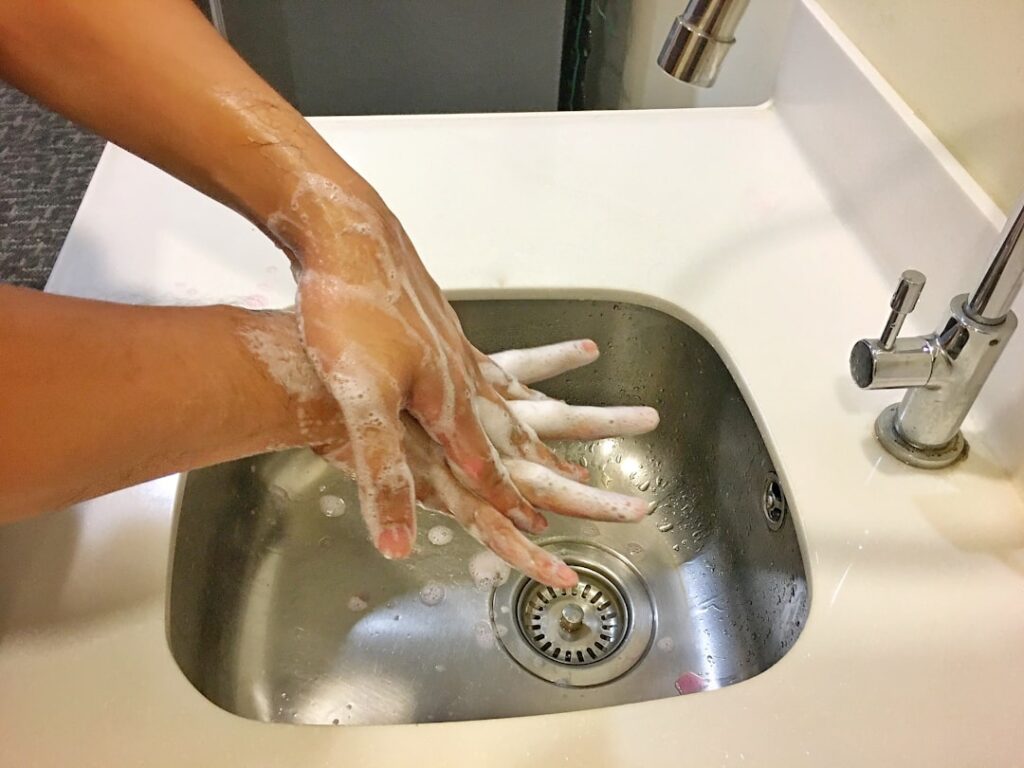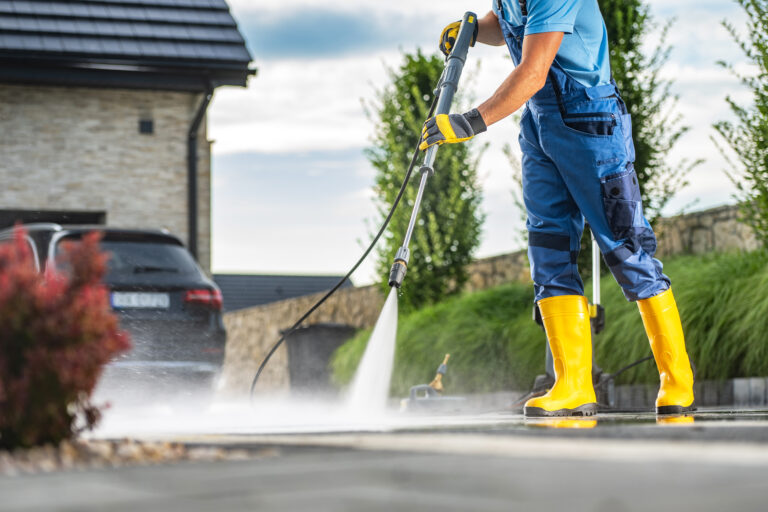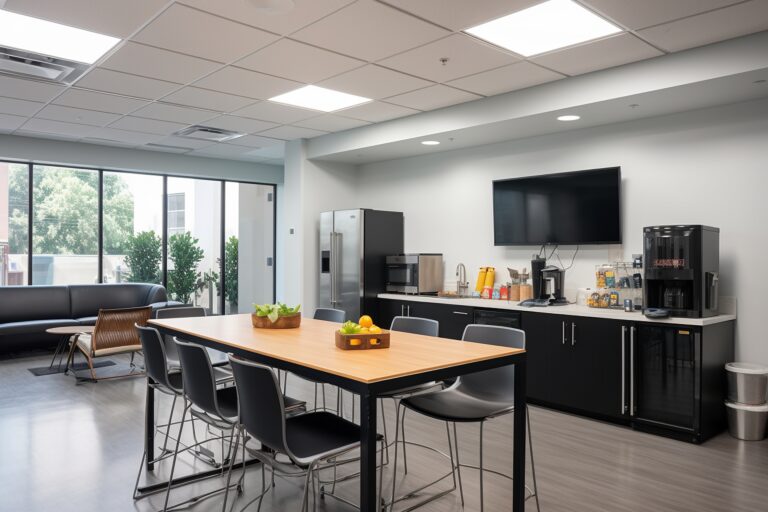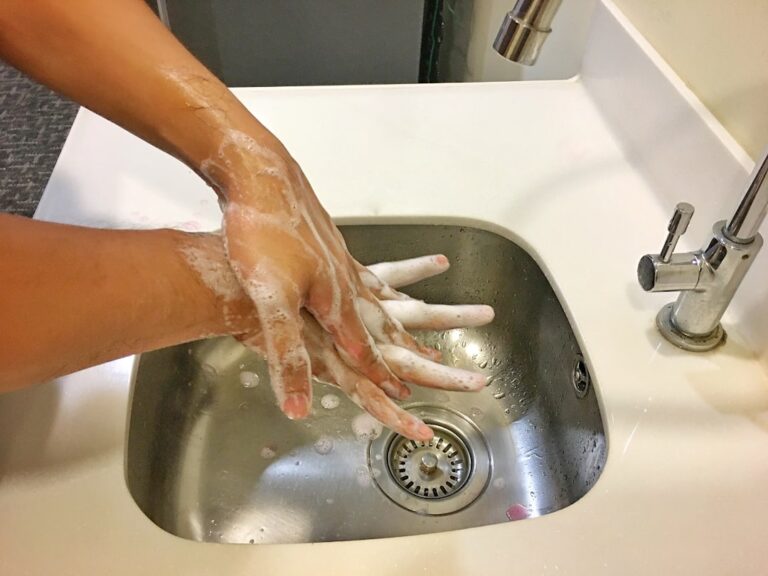As flu season approaches, the significance of deep cleaning in office environments becomes increasingly apparent. The flu virus can spread rapidly in communal spaces, where employees share equipment, workstations, and common areas. Deep cleaning is not merely a routine task; it is a critical measure to safeguard the health of employees and maintain productivity.
By thoroughly disinfecting surfaces and high-touch areas, businesses can significantly reduce the risk of flu transmission, creating a safer workplace for everyone. Moreover, deep cleaning during flu season goes beyond just preventing illness. It also fosters a culture of care and responsibility within the organization.
When employees see that their employer is taking proactive steps to ensure their well-being, it can enhance morale and promote a sense of community. This commitment to health can lead to increased employee satisfaction and retention, as individuals feel valued and protected in their work environment.
Key Takeaways
- Deep cleaning is crucial during flu season to prevent the spread of germs and viruses in the office.
- High-traffic areas and hotspots for germs in the office include doorknobs, light switches, and shared equipment.
- Developing a deep cleaning plan involves identifying specific areas and surfaces that require regular disinfection.
- Choosing the right cleaning products and equipment is essential for effectively eliminating germs and viruses.
- Implementing regular cleaning and disinfecting protocols for common areas helps maintain a healthy work environment.
Identifying High-Traffic Areas and Hotspots for Germs in the Office
Common Hotspots in the Office
Common hotspots include doorknobs, light switches, elevator buttons, and shared equipment such as printers and copiers.
Communal Spaces Require Special Attention
Additionally, communal spaces like break rooms and conference rooms require special attention, as they are often used by multiple employees throughout the day. Understanding where germs are most likely to accumulate allows for targeted cleaning efforts.
Targeted Cleaning for Maximum Impact
By focusing on these high-risk areas, United Facilities Group can implement a more efficient deep cleaning strategy that maximizes impact. Regularly assessing these hotspots ensures that cleaning protocols remain effective and responsive to the changing dynamics of the workplace.
Developing a Deep Cleaning Plan for the Office Space

Creating a comprehensive deep cleaning plan is essential for maintaining a healthy office environment during flu season. This plan should outline specific tasks, responsibilities, and timelines to ensure that all areas of the office are addressed systematically. A well-structured plan will include detailed checklists for each area, specifying which surfaces need to be cleaned and disinfected, as well as the frequency of these tasks.
In addition to outlining cleaning tasks, the plan should also incorporate contingency measures for unexpected outbreaks. This may involve increasing the frequency of cleaning in response to reported illnesses among employees or designating specific teams to handle urgent cleaning needs. By having a proactive approach in place, United Facilities Group can ensure that the office remains a safe space for all employees throughout flu season.
Choosing the Right Cleaning Products and Equipment for Deep Cleaning
Selecting appropriate cleaning products and equipment is crucial for effective deep cleaning during flu season. Not all cleaning agents are created equal; some may not be effective against viruses like influenza. It is essential to choose EPA-approved disinfectants that are proven to kill germs on contact.
Additionally, using microfiber cloths and mops can enhance cleaning efficiency by trapping dirt and bacteria more effectively than traditional materials. Investing in advanced cleaning equipment can also make a significant difference in the deep cleaning process. For instance, electrostatic sprayers can provide even coverage of disinfectants on surfaces, ensuring that hard-to-reach areas are adequately treated.
By utilizing the right products and equipment, United Facilities Group can enhance its deep cleaning efforts, providing a thorough and effective service that prioritizes employee health.
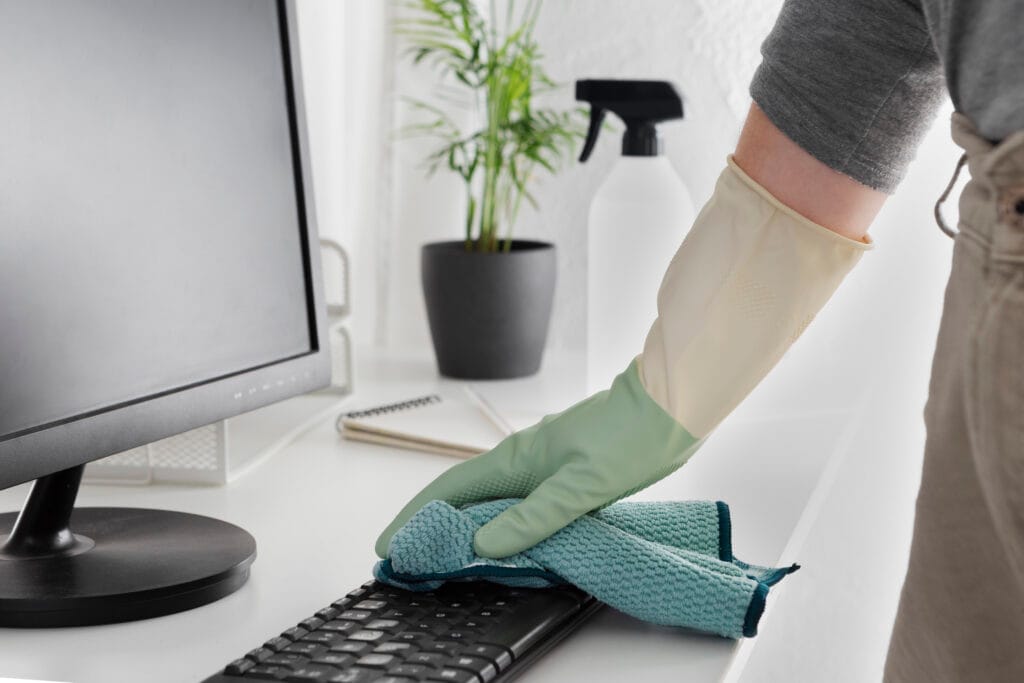
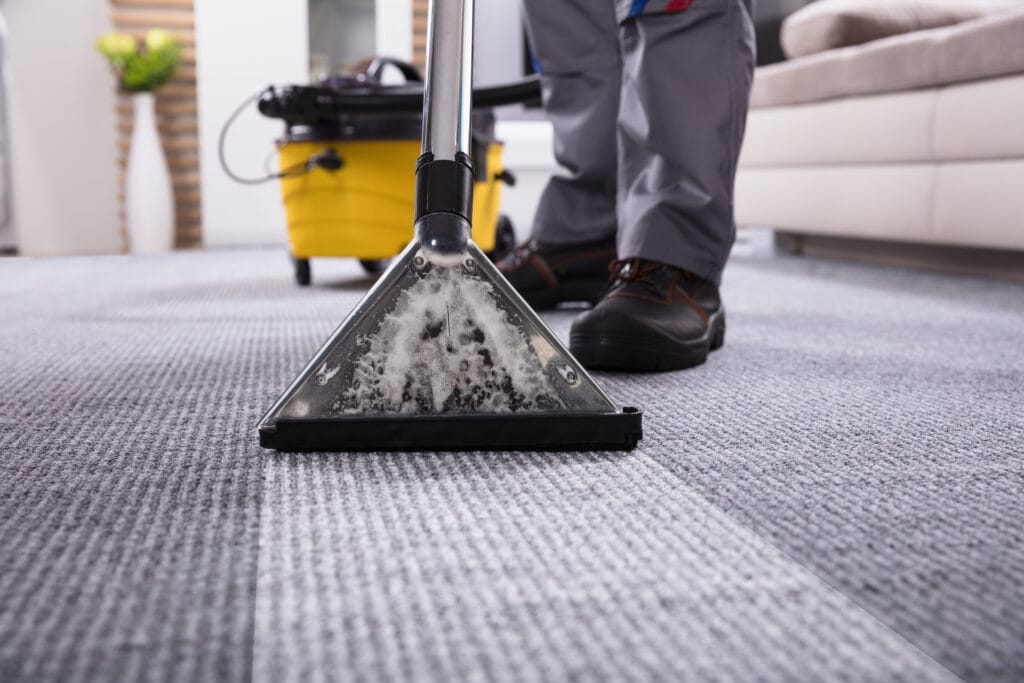
Implementing Regular Cleaning and Disinfecting Protocols for Common Areas
Common areas in the office require consistent attention to maintain cleanliness and prevent the spread of germs. Implementing regular cleaning and disinfecting protocols is vital for these shared spaces, which often see high foot traffic. This includes break rooms, restrooms, conference rooms, and reception areas.
Establishing a routine schedule for cleaning these areas ensures that they remain hygienic and safe for all employees. In addition to routine cleaning, it is important to communicate these protocols to employees. Transparency about cleaning schedules can help foster trust and encourage employees to take personal responsibility for their hygiene practices.
By working together to maintain cleanliness in common areas, United Facilities Group can create a healthier work environment that minimizes the risk of flu transmission.
Educating Employees on Hygiene Practices and Flu Prevention

Education plays a pivotal role in flu prevention within the workplace. Employees should be informed about proper hygiene practices that can help reduce the spread of germs. This includes regular handwashing with soap and water, using hand sanitizer when soap is unavailable, and avoiding touching their faces with unwashed hands.
Providing educational materials or hosting workshops on hygiene can empower employees to take proactive measures in protecting their health. Additionally, it is essential to communicate the importance of flu vaccinations as part of an overall health strategy. Encouraging employees to get vaccinated not only protects them but also contributes to herd immunity within the workplace.
By fostering an environment where health education is prioritized, United Facilities Group can help create a culture of wellness that extends beyond flu season.
Encouraging Sick Employees to Stay Home and Seek Medical Attention
One of the most effective ways to prevent the spread of illness during flu season is by encouraging sick employees to stay home. It is crucial for organizations to foster an environment where employees feel comfortable taking time off when they are unwell. This not only protects their health but also prevents potential outbreaks within the office.
Clear communication about sick leave policies can help alleviate any concerns employees may have about taking time off. In addition to encouraging sick employees to stay home, it is important to promote seeking medical attention when necessary. Providing resources for local healthcare services or telehealth options can facilitate access to care for employees who may need it.
By prioritizing employee health and well-being, United Facilities Group can contribute to a healthier workplace during flu season.
Providing Hand Sanitizing Stations and Tissues Throughout the Office
Accessibility to hand sanitizing stations and tissues throughout the office is essential for promoting good hygiene practices among employees. Placing hand sanitizers at key locations such as entrances, break rooms, and near shared equipment encourages regular use. This simple measure can significantly reduce the likelihood of germ transmission within the workplace.
Additionally, providing tissues in common areas helps employees practice respiratory etiquette by covering their mouths when sneezing or coughing. Ensuring that these supplies are readily available demonstrates a commitment to employee health and encourages individuals to take responsibility for their hygiene practices. United Facilities Group can play a vital role in implementing these measures effectively.
Creating a Plan for Managing and Disposing of Waste and Contaminated Materials
Proper waste management is an often-overlooked aspect of maintaining cleanliness during flu season. Creating a plan for managing and disposing of waste and contaminated materials is crucial for preventing cross-contamination within the office. This includes ensuring that trash bins are emptied regularly and that any materials used during cleaning are disposed of safely.
Additionally, it is important to educate employees on how to handle potentially contaminated materials properly. Providing clear guidelines on disposing of tissues or other waste items can help minimize risks associated with germ transmission. By establishing a comprehensive waste management plan, United Facilities Group can further enhance its efforts in maintaining a clean and safe office environment.
Scheduling Professional Deep Cleaning Services for the Office
While regular cleaning protocols are essential, scheduling professional deep cleaning services is an important step in ensuring thorough sanitation during flu season. Professional cleaners have access to specialized equipment and expertise that can enhance the effectiveness of deep cleaning efforts. By partnering with United Facilities Group, businesses can benefit from tailored cleaning solutions designed specifically for their office needs.
Scheduling these services at strategic times—such as before or after peak flu season—can maximize their impact. Additionally, having professionals conduct deep cleanings after reported illnesses among employees can help mitigate further spread within the workplace. By investing in professional services, organizations demonstrate their commitment to employee health and safety.
Monitoring and Maintaining the Cleanliness of the Office Space throughout Flu Season
Finally, monitoring and maintaining cleanliness throughout flu season is crucial for sustaining a healthy work environment. Regular assessments of cleaning protocols should be conducted to ensure they remain effective in combating germs. This may involve soliciting feedback from employees regarding cleanliness levels or conducting spot checks on high-traffic areas.
Furthermore, adapting cleaning strategies based on observed trends or emerging health concerns can enhance overall effectiveness. By remaining vigilant and responsive to changing circumstances, United Facilities Group can ensure that its deep cleaning efforts continue to protect employee health throughout flu season and beyond. In conclusion, addressing cleanliness during flu season requires a multifaceted approach that encompasses deep cleaning strategies, employee education, and proactive health measures.
By prioritizing these elements, organizations can create a safer workplace that minimizes the risk of illness while fostering a culture of care among employees in Northern California.
FAQs
What is deep cleaning?
Deep cleaning is a thorough and comprehensive cleaning process that goes beyond regular cleaning tasks. It involves cleaning and disinfecting hard-to-reach areas and surfaces that are often overlooked during routine cleaning.
Why is deep cleaning important during flu season?
Deep cleaning is important during flu season because it helps to eliminate germs, bacteria, and viruses that can spread and cause illness. By thoroughly cleaning and disinfecting the office, you can help reduce the risk of flu transmission among employees and visitors.
What are some key areas that should be deep cleaned in an office during flu season?
Key areas that should be deep cleaned in an office during flu season include high-touch surfaces such as doorknobs, light switches, desks, phones, keyboards, and shared equipment. Additionally, common areas such as break rooms, restrooms, and meeting rooms should also be thoroughly cleaned and disinfected.
How often should deep cleaning be performed during flu season?
Deep cleaning should be performed regularly during flu season, ideally on a weekly basis or more frequently if the office experiences a high volume of traffic or if there are confirmed cases of flu among employees.
What are some recommended cleaning and disinfecting products for deep cleaning during flu season?
Recommended cleaning and disinfecting products for deep cleaning during flu season include EPA-approved disinfectants that are effective against flu viruses, as well as cleaning tools such as microfiber cloths, mops, and brushes. It’s important to follow the manufacturer’s instructions for proper use of these products.
